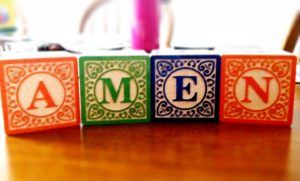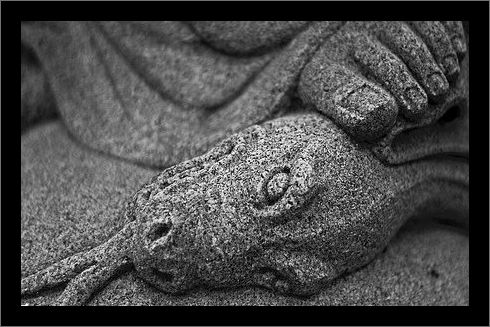When Does Viagra Go Generic In Canada

“To all who received him, to those who believed in his name, he gave the right to become children of God — children born not of natural descent, nor of human decision or a husband’s will, but born of God.”
The coming of Jesus is a gift from God. It’s a gracious and loving gift. But it has to be received. You have to say “Yes.”
Romans 8 explains it like this: “If we are God’s children, then we are heirs, heirs of God and co-heirs with Christ.” Galatians 4 tells us we are no longer slaves — You’re a son! You’re a daughter! God has made you an heir according to the promise. And if you are a co-heir with Christ Jesus, the first born of God, that makes you a first born of God with him.
And that should be astonishing to us.
Me. With all my sins, with all my flaws, with all my issues and problems. Me. God gives this incredible gift to me.
This is the essence of the Good News. This is the heart of Christianity. The amazement at the gift.
If you think Christianity is mainly about going to church and believing all the right things and living your life a certain way — there’s no surprise or wonder in that. Where’s the sheer happiness and incredible joy? If somebody asks, “Are you a Christian?” you’ll respond, “Of course I am. It’s hard work but, yes, I’m a Christian. Why?”
When we think and talk like that, Christianity is something done by you. So there’s no amazement in being a Christian. But if Christianity is something done FOR you, if it’s a great gift given TO you, then there’s a constant sense of surprise and wonder.
“Are you a Christian?” The answer shouldn’t be, “Of course!” It shouldn’t be so matter-of-fact, so automatic and obvious. It should be, “Yes! Yes, I’m a Christian and it’s unbelievable! It’s a miracle! Me, a Christian! Isn’t that crazy? But, yes, Christ Jesus has given me his righteousness, holiness, and peace! God through Christ has made me his child! I’m his forever! Can you believe it? Thanks be to God for his indescribable gift!”
These next few days are going to be hectic for most of us. There’s a lot to do, a lot to keep track of, there’s a lot going on. If we’re not careful, the significance of the season gets lost. The peace and joy gets crowded out by the chores and noise. And we miss it.
There’s a reason we give and receive gifts at Christmas. There’s a reason that gifts are such a central part of the Christmas experience. May the beauty of those gifts — the wrapping, the ribbons and bows, the colors — remind us that the beautiful salvation we share in Christ Jesus is a gift from God. May the abundance of the Christmas presents point to the forgiveness, the holiness, righteousness, and peace — all the salvation gifts lavished on us through Jesus. And when we’re opening presents in the coming days, may our eyes and our hearts be opened anew to the wonder of God’s matchless love for the world. And for you.
God at Work: Sacrament
 Sacrament: A physical symbol that acts as a means of God’s grace by which we participate in a spiritual reality.
Sacrament: A physical symbol that acts as a means of God’s grace by which we participate in a spiritual reality.
This Sunday at Central we’re beginning a 13-weeks Bible class series on the sacraments of baptism, communion, and the Christian assembly. Our intent is to move more toward viewing these special moments together as places and times when our God is redemptively present and seriously at work. We want to learn how to focus more on what God is doing and less on what we are doing in these practices. And the word “sacrament” is significant for our understanding and growth.
The definition above is my own version of how the Church has understood the term for centuries. Let’s explain it using each of the divine ordinances.
 Baptism – The physical symbol is the water. The water is real, it’s tangible. You can see it, you can feel it, you can experience it. It’ll ruin your phone, it’ll go up your nose — it’s real. But the water also represents a reality beyond itself. It points to something bigger. The water symbolizes the death, burial, and resurrection of Jesus. What makes baptism a sacrament is that, by God’s Spirit, we actually participate in the reality it symbolizes. In baptism, we are buried and raised with Christ Jesus. Baptism connects us to Christ’s death and resurrection.
Baptism – The physical symbol is the water. The water is real, it’s tangible. You can see it, you can feel it, you can experience it. It’ll ruin your phone, it’ll go up your nose — it’s real. But the water also represents a reality beyond itself. It points to something bigger. The water symbolizes the death, burial, and resurrection of Jesus. What makes baptism a sacrament is that, by God’s Spirit, we actually participate in the reality it symbolizes. In baptism, we are buried and raised with Christ Jesus. Baptism connects us to Christ’s death and resurrection.
“Don’t you know that all of us who were baptized into Christ Jesus were baptized into his death? We were therefore buried with him through baptism into death in order that, just as Christ was raised from the dead through the glory of the Father, we too may live a new life. If we have been united with him like this in his death, we will certainly also be united with him in his resurrection.”
 Lord’s Supper – The physical symbol is the bread and the cup, the cracker and the juice. Those are concrete, real things, physical things. You can smell the juice, you can crunch the cracker; it gets stuck in your teeth, it can stain your slacks — it’s real. But the meal represents Jesus eating and drinking with his disciples. What makes the communion meal a sacrament is that, by God’s Holy Spirit, we actually are participating in the thing it represents. We are literally eating with the Lord. Somehow, mysteriously, yes, he meets us at the table and eats with us.
Lord’s Supper – The physical symbol is the bread and the cup, the cracker and the juice. Those are concrete, real things, physical things. You can smell the juice, you can crunch the cracker; it gets stuck in your teeth, it can stain your slacks — it’s real. But the meal represents Jesus eating and drinking with his disciples. What makes the communion meal a sacrament is that, by God’s Holy Spirit, we actually are participating in the thing it represents. We are literally eating with the Lord. Somehow, mysteriously, yes, he meets us at the table and eats with us.
“Is not the cup of thanksgiving for which we give thanks a participation in the blood of Christ? And is not the bread that we break a participation in the body of Christ?”
 Christian Assembly – The physical symbol is the people in the room. It’s us. Real men, women, and children, wearing clothes, laughing, singing, whispering, chewing gum, praying; babies crying and people sneezing — it’s real. And it symbolizes something bigger. It represents the heavenly assembly around the throne of God. By God’s Spirit, we join that heavenly chorus — we are actually participating in what we can’t see yet. We are singing and praying with all the saints of all time in heaven, in the eternal presence of God. That’s what makes the Sunday morning worship gathering a sacrament.
Christian Assembly – The physical symbol is the people in the room. It’s us. Real men, women, and children, wearing clothes, laughing, singing, whispering, chewing gum, praying; babies crying and people sneezing — it’s real. And it symbolizes something bigger. It represents the heavenly assembly around the throne of God. By God’s Spirit, we join that heavenly chorus — we are actually participating in what we can’t see yet. We are singing and praying with all the saints of all time in heaven, in the eternal presence of God. That’s what makes the Sunday morning worship gathering a sacrament.
“You have come to Mount Zion, to the heavenly Jerusalem, the city of the living God. You have come to thousands upon thousands of angels in joyful assembly, to the Church of the firstborn, whose names are written in heaven. You have come to God, the judge of all people, to the spirits of righteous men and women made perfect, to Jesus, the mediator of a new covenant…”
God is present with us, saving us, nourishing us, changing us. When we view these three ordinances as merely commands to obey, we’ll focus on what we are doing. When we understand them as sacraments, we’re better able to focus on what God is doing.
The Gain is Worth the Pain

“Our fathers disciplined us for a little while as they thought best; but God disciplines us for our good, that we may share in his holiness. No discipline seems pleasant at the time, but painful. Later on, however, it produces a harvest of righteousness and peace for those who have been trained by it.”
Our Father is at work during the hard times in our lives, training us to share in his holiness, righteousness, and peace. The preacher in Hebrews is telling us, look, we ought to recognize the pattern here. We experienced this with our own parents and, if we’re parents ourselves, we do the same things. Good parents, including God, exercise discipline because they want their children to grow up to be like them, to share their values and commitments and way of life.
We sent one of our daughters to college in Oklahoma City and we told her, “You can only date boys from Texas.” Why? Because we have standards — standards related to our values and way of life. I check our youngest daughter’s phone from time to time and I see that almost half her playlist is Tom Petty and Aerosmith. And I say to myself, “Ah, we raised her right.”
God’s like that, too. He wants us to grow up to be like him. He wants us to love what he loves, to think what he thinks. He wants us to be holy like he is holy, to treat people the way he treats people, and to be righteous in the ways he is righteous. So he trains us. He conditions us. He uses discipline. And it’s not always pleasant. But it is always for our good.
“We rejoice in our sufferings because we know that suffering produces perseverance; perseverance, character; and character, hope. And hope does not disappoint us, because God has poured out his love into our hearts by the Holy Spirit, whom he has given us.”
“Consider it pure joy, my brothers and sisters, whenever you face trials of many kinds, because you know that the testing of your faith develops perseverance. Perseverance must finish its work so that you may be mature and complete, not lacking in anything.”
“We boast about your perseverance and faith in all the persecutions and trials you are enduring. All this is evidence that God’s judgment is right, and as a result you will be counted worthy of the Kingdom of God.”
We know what God is doing through our struggles. We know it’s for our ultimate, eternal good. This character forming, this kind of relationship building with God, is proof that you belong to him as his child. It’s proof that he cares for you and he’s committed to you.
I know your sufferings are painful and your trials are terrible. And I know your troubles or whatever you’re going through make you feel lonely and desperate and depressed. Physically, emotionally, mentally, spiritually — I know it’s real. And the Scriptures do not discount how hard this life is. The Bible doesn’t downplay the costs associated with a life of faith. The Scriptures don’t brush off your feelings. Your feelings are real. Your hard experiences are real. But the preacher in Hebrews wants to open our ears and our hearts to the eternal truth, to the everlasting reality of what’s being accomplished.
Let us fix our eyes on Jesus.
Jesus stayed focused on the joy in front of him: the joy of doing his Father’s will, the joy of fulfilling his Father’s purposes, the joy of participating in God’s salvation. Jesus endured the agony of the cross, he suffered through an excruciating physical, emotional, mental, and spiritual torture and death. And because he persevered, he reigns today at the right hand of the throne of God.
The preacher in Hebrews knows the people in his church are hurting. And they’re tired of hurting. They’re tired of suffering. To encourage them to keep running the race, he reminds them of the truth of Christ Jesus. Whatever you’re suffering, whatever you’re going through, Jesus went through so much worse, so much more, for the sake of your holiness, your righteousness, and your peace.
Moving Away From the Tomb

I’m struck by the fact that nobody saw Jesus at the empty tomb. Clearly our risen Lord didn’t hang around the cemetery once the Spirit resurrected him back to life. It seems he got out of there as fast as he could. Yet, here are the women, looking for their living Lord among the graves. The angels ask, almost incredulously, “Why do you look for the living among the dead?”
Sometimes good faithful Christians can be stuck. We’re dead. Or, at least, we act like we’re dead. Some of us have followed Jesus to Jerusalem. We’ve endured suffering and pain in his name. We’ve carried the cross. Most of us have died on the cross of Christ and, even though we’ve been baptized for the forgiveness of our sins and received the gift of God’s Spirit inside us, we’ve never really been resurrected. Some of us don’t live like we’ve been given the gift of eternal life by the almighty author of life. We live like we’re still dead. We’re still knocking around in the dirt and dark of the grave. And we’re surprised when we have a hard time seeing Jesus. We’re surprised when there’s no experience of Jesus.
The resurrection is not just about heaven someday — it’s about a full life today!
But some of us are still buried in a tomb. We don’t sing. We don’t work. We don’t explore or experiment. We don’t accept challenges or tackle new tasks. We don’t grow. We don’t laugh. Singing and working and exploring and growing and laughing are what you do when you’re alive! If you’re grumpy all the time, you’re not living the resurrection life. If you’re negative all the time, you’re dead.
What are you thinking? God’s going to fix my attitude when I get to heaven?
“Because of his great love for us, God, who is rich in mercy, made us alive with Christ!”
“Just as Christ was raised from the dead through the glory of the Father, we too may live a new life!”
“If the Spirit of him who raised Jesus from the dead is living in you, he who raised Christ from the dead will also give life to your mortal bodies through his Spirit, who lives in you.”
 The death and resurrection of Jesus is not just about my sin and Jesus taking my punishment and now everything’s great. We’ve been given eternal life. We share in Christ’s resurrection so we can be holy, royal image-bearers, so we can be ambassadors for Jesus and partners in his Gospel.
The death and resurrection of Jesus is not just about my sin and Jesus taking my punishment and now everything’s great. We’ve been given eternal life. We share in Christ’s resurrection so we can be holy, royal image-bearers, so we can be ambassadors for Jesus and partners in his Gospel.
But I want to play it safe. Better safe than sorry. I don’t want to take any risks. I don’t want to go out on a limb. I don’t want to change or grow.
Man, you’re living in the dark and cold of the grave! And that’s not really living. Follow Jesus away from the grave and into the warmth and light of his resurrection life!
Once the disciples moved away from the grave, they most certainly did not play anything safe. There was no hiding or sleeping. No stagnation or status quo. They started preaching and teaching. They sold their possessions to give to the poor. They violated city ordinances to proclaim the good news. They took mission trips on broken down boats and prayers. They sang praises in prison chains. They turned the world upside down for the Kingdom of God! That’s resurrection living!
It’s like a wonderfully talented musician on the verge of his own worldwide concert tour. He plays beautifully. He’s awesome. He’ll inspire thousands. But he’s caught up in a terrible crime and is thrown in jail. But, then, by some miracle, the governor declares a general amnesty and the great musician is released! His response is not just, “Whew! Thank goodness I don’t have to go to jail!” It’s, “Now I can play like I was born to play! I can perform like I was created to perform!”
Christians sometimes are too preoccupied with not going to jail.
Listen. If you’re in Christ, YOU’RE NOT GOING TO JAIL! So now you can really live!
This is good news, not good advice. This is the Gospel.
Jesus is God’s “Yes” to You
nor a son of man, that he should change his mind.
 What God says, he will do. What God promises, he will fulfill. God is faithful to his Word. What God has said about your life, what he has said regarding your past, what he has promised related to your right now, what he has promised concerning your home, your family, your job, your well-being — he is faithful. He can be trusted to keep his Word.
What God says, he will do. What God promises, he will fulfill. God is faithful to his Word. What God has said about your life, what he has said regarding your past, what he has promised related to your right now, what he has promised concerning your home, your family, your job, your well-being — he is faithful. He can be trusted to keep his Word.
There are a lot of promises in the Bible. God promises to do a lot of really great and eternal things. But I think we struggle sometimes to believe his promises are for “me.” Church people, Christians, — us! — believe God in the abstract, but we struggle to believe him personally. We believe in theory. But it doesn’t always translate to “me” very well.
I totally believe that Jesus Christ died on the cross and that he was raised from the dead for the forgiveness of sins. Yes, I believe God promised to forgive sin and I believe God worked through Jesus to accomplish it. Amen, yes, I believe in the forgiveness of sins…
…unless we’re talking about your sins, maybe.
Well… I’ve got some really bad sins. I don’t know. I mean, I still sin. I’m not a good person. I can’t believe my sins are totally taken care of. Not all of them.
Look, I’ll be honest here. I can have a hard time with this, too. It doesn’t always take much. Bad things can start happening and I can question and doubt the faithfulness of our God.
“No matter how many promises God has made, they are ‘Yes’ in Christ!”
Everybody loves to hear “Yes.” You’ve never heard anybody say, “If I could get a few more ‘NOs’ in my life, I’d be a happier person.” Two children talking together in a bedroom have never said, “Let’s don’t ask dad, let’s ask mom; she always says ‘No!’” We all want to hear “Yes.” We love to hear “Yes.”
Scripture reminds us that all of God’s promises find their “Yes” in Jesus. Not half of God’s promises, not some of God’s promises, not a conditional percentage of God’s promises — the answer to every single promise God has ever made is “Yes” in Jesus!
How do you really know God’s promises are true for you? Can you really trust that all your sins are truly forgiven? How do you know?
Scripture says if we look to ourselves for the answers to these profound and valid questions, we’ll struggle and doubt for our entire lives. The solution is to look to Jesus. Find the answers in Jesus. Fix your eyes on Jesus and your confidence and faith in God will grow.
How do you know God is fully in charge and he really is going to fix everything that’s wrong with the world and me? Look at Jesus. Look how he heals the lame, how he gives sight to the blind, how he feeds the hungry, how he drives out the tormenting demons, how he raises the dead. God will fix you. It’s a promise.
 How do you know God can really forgive my worst sins? Look at Jesus. Look how he loves the prostitute at Simon’s house and says to her, “Your sins are forgiven.” Look how he saves the woman caught in adultery and tells her, “I don’t consider you guilty.” Look how he forgives the tax collector in the tree, the best friend who betrayed him, the paralyzed man. Look how Jesus prays from the cross for his accusers and executioners; how with his dying breath he prays for his killers: “Father, forgive them.” God will forgive you. It’s a promise.
How do you know God can really forgive my worst sins? Look at Jesus. Look how he loves the prostitute at Simon’s house and says to her, “Your sins are forgiven.” Look how he saves the woman caught in adultery and tells her, “I don’t consider you guilty.” Look how he forgives the tax collector in the tree, the best friend who betrayed him, the paralyzed man. Look how Jesus prays from the cross for his accusers and executioners; how with his dying breath he prays for his killers: “Father, forgive them.” God will forgive you. It’s a promise.
How do you know that God is really for you, that he’s not indifferent toward you, that he really loves you and he’s in tune with you and paying attention to you and he wants the very best for you? Look at Jesus on that cross. He died for you. He suffered and died for you.
“What, then, shall we say in response to this? If God is for us, who can be against us? He who did not spare his own Son, but gave him up for us all — how will he not also, along with him, graciously give us all things?”
There is no event in salvation history, there is no promise made by God to his people, that is not coming true in Jesus. God is faithful to keep his Word to you. It’s a promise.
Satan Crushed

Before we move away from the end of Romans, I’d like to point you to one of the most powerful verses in all of Holy Scripture, Romans 16:20:
“The God of Peace will soon crush Satan under your feet!”
Wow. How powerful. How empowering. I’m not sure any of the motivational speeches in the history of the silver screen, from Knute Rockne to Braveheart, ever inspired as much hope. From Washington to Bowie to Patton, no commander has ever spoken a more immortal truth to rally the troops. Vince Lombardi and Tom Landry combined could never touch the power of these motivational words.
“The God of Peace will soon crush Satan under your feet!”
If these words of Holy Scripture are true — and they are! — then there’s nothing that can ever stop us. There is nothing to fear. There is nothing to doubt. Nobody can stand in our way. Satan can’t stop us. Satan can’t slow us down. Satan can’t scare us or intimidate us or trick us. His fate is sealed. His destiny is already being delivered. He will soon be completely crushed by God under our feet.
So, what are we afraid of? Why are we so slow to act? What are we waiting for?
With Satan out of the picture, we are liberated to do bold things, courageous things, great things for God’s Kingdom in the name of our Risen Lord. With no fear. No doubts. No hesitation.
“The God of Peace will soon crush Satan under your feet!


